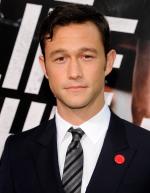AThe marketing section of FOX decided to provide a short explanation of the necessary facts about Abraham Lincoln and the American history in the international release outside of the USA. They came to the conclusion that most people probably wouldn't know about the role that Abraham Lincoln played in the civil war and in the abolishment of slavery. A detailed comparison between both versions with pictures can be found here.
AYes, but this statement is often taken out of context to distort Lincoln's views on slavery.In August of 1862, Lincoln wrote an open letter to Horace Greeley, the editor of the influential newspaper The New York Tribune. The letter was in response to an editorial which Greeley had written, called "The Prayer of Twenty Millions", in which he criticized the Lincoln administration for not being active enough on the issue of emancipation. Lincoln's letter defended and explained his administration's actions as part of the war effort.Critics of Lincoln will sometimes quote a central line from this letter where Lincoln explains that:"My paramount object in this struggle is to save the Union, and is not either to save or to destroy slavery. If I could save the Union without freeing any slave I would do it, and if I could save it by freeing all the slaves I would do it; and if I could save it by freeing some and leaving others alone I would also do that."This quote is often lifted out of context to try and portray Lincoln as indifferent about the issue of slavery, since he suggests here that his position on slavery is dictated by the necessity of war. However, the context in which Lincoln wrote the letter sheds a very different light on the meaning of this phrase. In July of 1862, a month before he responded to Greeley, Lincoln had already announced to his cabinet his intention of issuing the Emancipation Proclamation, which would free the slaves. At the advice of Secretary of State William Seward, Lincoln delayed issuing the proclamation until the Union's military prospects improved so that it would not seem an act of mere desperation. Lincoln would wait until after the Union victory at Antietam in September to issue the preliminary Emancipation Proclamation.In this context it's clear that Lincoln's letter to Greeley was not indicating indifference to the issue of slavery. In fact it was doing just the opposite. Lincoln used the letter as opportunity to lay the groundwork for the Emancipation Proclamation which he had already decided to issue. By identifying the emancipation of slaves as a potential war measure, Lincoln was laying out his logic for why he had the power to issue the Emancipation Proclamation. At the same time, his framing of emancipation as a necessary war measure would have helped reconcile conservative Northern whites, who cared deeply about the union but were often indifferent to slavery, to the Proclamation.
AThat is because most contemporary sources described Lincoln's voice as thin and reedy, although it carried well over large audiences for speaking engagements. Previous film adaptations gave him a deeper voice as an assumption that a man who was a US President would sound more "manly."




















